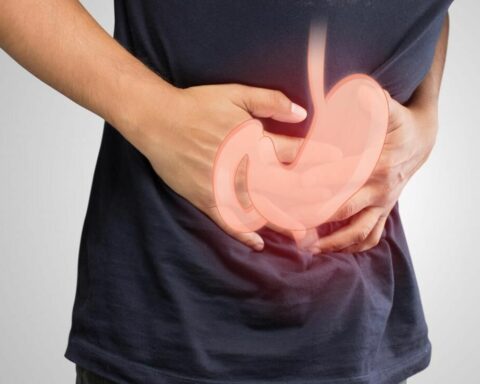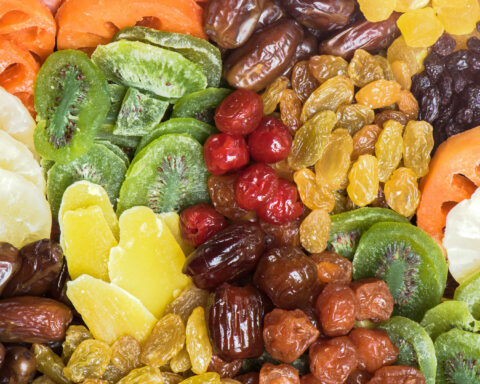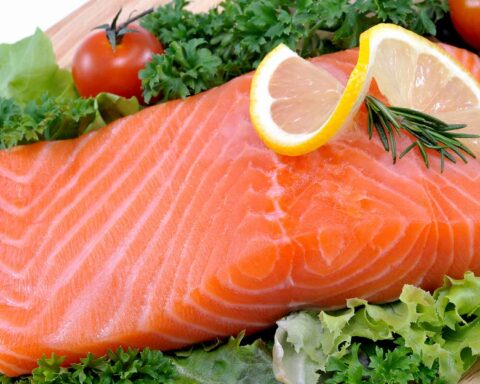Heartburn is a common symptom of gastroesophageal reflux disease (GERD), a condition in which gastric acid retreats into the esophagus. Heartburn can also occur not as a symptom but caused by certain foods.
People who have heartburn usually describe it as a burning sensation felt specifically in the lower chest area. In normal circumstances, acid and foods particles are barred from retreating into the esophagus with the lower esophageal sphincter. When this sphincter or muscle weakens, as with GERD, acid burns the esophagus leading to heartburn. Foods you eat also are important for occurrence heartburn. Many foods can weaken the lower esophageal sphincter and allow acid to enter your esophagus, causing heartburn. The foods discussed below can aggravate or cause heartburn.
1. Foods High in Fat
Certain foods high in fat may cause heartburn. Sadly, this includes nutrient-dense and healthy foods, such as nuts, avocados, and cheese. They can stimulate heartburn in two ways. One way is by relaxing the lower esophageal sphincter, a tight muscle or ring between the esophagus and stomach. When the lower esophageal sphincter relaxes, acidic food or acid can get into your esophagus and cause heartburn. The other way is by stimulating the release of cholecystokinin (CKK). CKK is a hormone that may also relax the lower esophageal sphincter and allow acid to get into the esophagus. CKK also extends the time food stays in the stomach for better digestion. While this may be helpful, it may increase the likelihood of having acid reflux and heartburn in the end. You also need to watch out for unhealthy foods that are high in fat, such as fried and takeout meals.
2. Mint
Most people use peppermint or spearmint, among other mints, to relieve digestive symptoms. However, studies indicate that these mints may also cause heartburn. Taking too much spearmint, according to studies, is associated with heartburn. Spearmint causes heartburn by irritating the smooth lining of the esophagus. Plus, daily consumption of peppermint tea can increase the risk of heartburn two-fold. Nevertheless, evidence on mint tied to heartburn is so small to make a conclusion that it can cause it. If, in any case, you experience heartburn or it worsens it, you may need to consider avoiding it.
3. Juices Made with Citrus
Symptoms of heartburn may be increased significantly with drinking juice made with citrus. For example, orange juice has higher chances of up to 67% of stimulating heartburn in people with this condition. The same is true with grape juice. While acid in citrus is responsible for the occurrence of heartburn, there is no study to clearly indicate how drinking citrus juices may lead to heartburn.
4. Chocolate
This is another common cause of heartburn. It works the same as foods rich in fat in that it relaxes the lower esophageal sphincter. This permits gastric acid to enter the esophagus and cause heartburn. What’s more, cocoa is one of the main ingredients in chocolate. Cocoa contains serotonin – the hormone responsible for elevated mood – which can also relax the lower esophageal sphincter. In addition, caffeine and theobromine are active compounds found in chocolate and can relax the lower esophageal sphincter as well.
5. Spicy Foods
Spicy foods are the most commonly known cause of heartburn. Most spices contain a plant compound called capsaicin which slows down the rate at which foods are digested. Chili in chili powder, for example, is associated with a slowed rate of digestion. Spicy foods may also aggravate the symptoms of heartburn by irritating a diseased esophagus. It will help to cut back on your intake of spicy foods if you have heartburn.
6. Salt
Did you see it coming? I guess not. Studies suggest that eating salty foods and salt may cause heartburn by allowing foods to escape into the esophagus. Adding table salt to your meal increases your risk of heartburn by up to 50%. There is a likelihood of people consuming salty foods eating more fatty or fried foods. This can explain why salt triggers heartburn. Otherwise, it is not clear how salt can cause heartburn.
7. Onions
Eating onions, especially raw onions, can precipitate the symptoms of heartburn. Onions also work like other foods discussed in this article by relaxing the lower esophageal sphincter and necessitating acid reflux and worsening heartburn symptoms. Another reason why onions cause heartburn is that they provide lots of fermentable fiber, which makes you belch more. Acid reflux can be precipitated by belching, which carries acid alongside the escaping gas.
8. Alcohol
Many people take too much alcohol, and an excess intake of it can cause heartburn in many ways. One way is by relaxing the lower esophageal sphincter, which permits gastric acid to flow into the esophagus and cause heartburn. Alcoholic beverages can also stimulate your stomach to produce more acid, which increases your risk of heartburn. Lastly, chronic and excess intake of alcohol can directly damage the esophageal lining. With time, your esophagus can become more sensitive to gastric acid, hence heartburn.
9. Coffee
Coffee is another cause of heartburn in some people who use it. Coffee, just like other foods in this list, can loosen the lower esophageal sphincter and cause heartburn by allowing acid to flow into the esophagus. Researchers have thought that caffeine in coffee may be the culprit. However, studies based on caffeine individually showed that it could not cause heartburn. This means that there are some compounds in coffee that aggravate heartburn. Since research is conflicting, if coffee is fine with you, then continue with it, but if it aggravates symptoms of heartburn, then you may need to cut back on it or eliminate it as well.
10. Carbonated Drinks
Carbonated drinks and sodas may also cause heartburn. This is because they increase the production of acid in the stomach and loosen the lower esophageal sphincter – both of which increase the risk of heartburn.
Conclusion
Heartburn is a common problem among many people. While it is a symptom of gastroesophageal reflux disease, heartburn may occur on its own, aggravated by the foods you eat. Most of the foods discussed above loosen the lower esophageal sphincter permitting acid to enter the esophagus and cause heartburn. You may need to avoid them or limit your intake.
- Our Big Kitchen’ (OBK) is a non-profit organization located in Sydney, Australia - April 10, 2023
- Duos CBD, a hemp product E-commerce website - April 10, 2023
- SOFA SPOONING SEX POSITION - April 7, 2023









